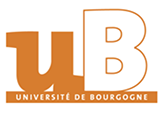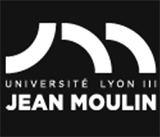Introduction
The University of Paris is one of the oldest universities in Europe. It is located in the French capital of Paris. Its teaching history can be traced back to the mid-12th century. In 1180, King Louis VII of France officially granted it the title of "university".
Overview
Number of students and faculty: As a university formed by the merger of multiple universities, the number of students and faculty in different campuses and disciplines varies. Taking the University of Paris-Cité as an example, there are many students and faculty, but there is no exact unified data at present.
Campus distribution: The University of Paris, which merged in 2019, has campuses in many places in Paris. For example, the University of Paris-Cité, which inherited the name of the University of Paris, has campuses in different areas of Paris.
History
In the 8th to 11th centuries, Charlemagne, the King of the Franks, ordered the establishment of church schools. Later, Notre Dame de Paris and other church schools gradually developed. Scholars gathered to give lectures and students flocked to the school. From the 11th century, church schools and private schools, the predecessors of the University of Paris, began to appear.
In the middle of the 12th century, the prototype of the University of Paris began to take shape. In 1179, the Pope stipulated that parish churches should run schools to promote its development. In 1200, the king granted the school a certificate of privilege. In 1215, the Pope's envoy formulated a charter for it. In 1231, the Pope issued an edict to finally free the University of Paris from the control of the bishop and give it many rights. In 1257, the Sorbonne College was established, and the term "University of Paris" was officially used in 1261.
In the early 14th century, the University of Paris had nearly 20,000 students, and its organizational form was imitated by European universities. However, during and after the "Hundred Years' War" between England and France, due to various reasons, such as participating in the opposition to the French royal family and the trial of Joan of Arc, its privileges were gradually revoked.
From the end of the 15th century to the 16th century, influenced by the Renaissance and the Reformation, the University of Paris faced many challenges and competitions, such as the establishment of the Royal Academy and the establishment of the Jesuit School.
In the 17th century, Cardinal Richelieu served as the president and presided over a large-scale reconstruction project.
During the French Revolution in 1793, the University of Paris was disbanded, rebuilt in 1896, and split into 13 independent universities in 1968.
In 2019, the University of Paris V, the University of Paris VII and the Paris Geophysical Institute merged into the University of Paris, and in 2022 it was renamed the University of Paris Cite.
Founding time
Its teaching history can be traced back to the middle of the 12th century, and the term "University of Paris" was officially used in 1261.
School strength
Teaching quality: As a university with a long history and profound academic background, its teaching quality enjoys a high reputation in France and even Europe. Academic education covers three-level degree courses: bachelor's, master's and doctoral. The professional settings are extensive, covering many disciplines such as humanities and social sciences, natural sciences, medicine, law, economics, etc., providing students with a wealth of professional choices and cultivating many outstanding talents, such as Marie Curie and other Nobel Prize winners.
Scientific research level: It has many internationally renowned research laboratories and scientific research teams, and has achieved remarkable scientific research results in many disciplines. For example, it is at the international leading level in basic disciplines such as physics, chemistry, medicine, mathematics, and some research directions in the humanities and social sciences, and has made important contributions to promoting academic progress and social development.
Institutional nature
Public university.
Educational philosophy
Focus on cultivating students' critical thinking, innovation and practical ability, emphasizing academic freedom and knowledge inheritance, and encouraging students to explore and research in different disciplines to cultivate comprehensive talents with global vision and social responsibility, and contribute to the development and progress of society. Its school motto "Liberté, Égalité, Fraternité" (freedom, equality, fraternity) also reflects the guidance of this educational philosophy on students' values.
Key laboratories and disciplines
Key laboratories: such as the Analysis, Geometry and Modeling Laboratory (UMR CNRS 8088), which conduct cutting-edge research in related disciplines, provide students with opportunities to participate in scientific research projects, and provide important support for the development of disciplines.
Key disciplines: Physics, chemistry, medicine, law, economics, mathematics, literature and other disciplines are strong. Among them, the field of physics has produced many Nobel Prize winners, and the field of medicine has achieved fruitful results in clinical research and medical theory. The law major has an important position in legal research and education in France and Europe, and the economics major has trained a large number of professionals in the French and international economic fields.
Faculty
The merged University of Paris has multiple colleges and faculties, such as the School of Medicine, the School of Law, the School of Arts, the School of Science, the School of Economics, etc., covering many disciplines and providing students with comprehensive education and professional choices.
Ranking
Under different ranking agencies and ranking indicators, the ranking of the University of Paris is different. As one of the inheritors of the University of Paris, the University of Paris-Cité and others have performed well in the comprehensive rankings in France and internationally, and are also in a leading position in some disciplines.
Fees
As a public university in France, the registration fee is relatively low, generally ranging from a few hundred euros, and the specific fees vary slightly depending on the major and degree level. In addition, students are required to bear their own living expenses, including accommodation, food, transportation and other expenses.
Campus
Campus environment: Paris is the political, economic and cultural center of France, with rich historical and cultural heritage and artistic atmosphere, providing students with a good learning and living environment. The various campuses of the University of Paris are distributed in different areas of Paris. The campus architectural styles are diverse, integrating historical and modern elements.
Campus facilities: The school has complete teaching facilities, including modern teaching buildings, libraries, laboratories, computer rooms, etc. It also has restaurants, dormitories, sports facilities and other life service facilities to meet the daily needs of students and provide students with convenient learning and living conditions.
-

University of Angers
-

University of Caen Normandy
-

University of Bordeaux
-

Claude Bernard University Lyon 1
-

University of Burgundy
-

CY Cergy Paris University
-

Clermont Auvergne University
-

University of Artois
-

Jean Moulin University Lyon 3
-

University of Franche-Comté
-

Mesoamerican University
-

Istmo University
-

Mariano Galvez University of Guatemala
-

Regional University of Guatemala
-

Galileo University
-

Francisco Marroquín University
-

Rafael Landívar University
-

University of the Valley of Guatemala
-

University of San Carlos of Guatemala
-

Technological Institute of Tlaxcala Plateau
-

Golfo University
-

Technological University of South Sonora
-

Technological University of Huejotzingo
-

Tizimín Institute of Technology
-

Chilpancingo Institute of Technology

